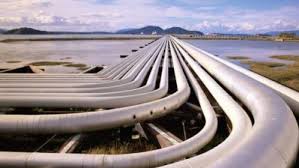
Oghenekevwe Ovbije & Obiageri Amaliri
Houston, TX — Nigeria’s gas sector holds undeniable potential, but potential alone does not deliver prosperity. For decades, successive administrations have spoken of “gas-led growth,” yet domestic penetration remains dismally low. The gas industry remains dominated by export-driven models, limited infrastructure, and policy declarations with minimal execution. For Nigeria to fully capitalize on its 206 TCF of proven gas reserves, a comprehensive domestic blueprint is urgently needed one that prioritizes energy access, industrial productivity, and long-term resilience. This article presents a systems-level roadmap that connects upstream abundance with downstream utility through regulatory reform, infrastructure expansion, safety systems, and private sector collaboration.
Rebuild the Policy and Regulatory Foundation
The starting point is governance realignment. Nigeria’s current gas framework lack enforcement, disincentivizes investment, and overcentralizes decision-making.
- Break the monopoly: Open the LNG market to private and subnational players through liberalized export licensing and domestic mini-LNG infrastructure.
- Enforce Domestic Gas Obligations (DGO): Mandate at least 40% of gas output be reserved for the local market before allowing exports.
- Establish a National Gas Infrastructure Authority (NGIA): This independent body would coordinate gas pipeline development, enforce access transparency, regulate safety, and provide investor guarantees.
Without clear enforcement and accountability structures, well-intentioned policies like the Decade of Gas will remain political slogans.
Build the Infrastructure Backbone
No energy transition is possible without infrastructure. Nigeria’s current pipeline grid is fragmented, mostly limited to the Niger Delta region, and inadequate for mass domestic deployment.
- National Gas Pipeline Grid: Modeled after India’s Urja Ganga, Nigeria needs a connected pipeline spine that links gas-producing states to industrial, urban, and agricultural hubs in all geopolitical zones.
- City Gas Distribution (CGD): State-level partnerships should facilitate piped gas distribution in major cities for residential, SME, and institutional use.
- CNG Refueling Ecosystem: Deploy refueling station, prioritizing major highways and logistics corridors.
Infrastructure should no longer be a bottleneck it must be the enabler.
Gasify Power, Transport, and Industry
Mass deployment of gas across Nigeria’s economic engines will unlock transformative outcomes:
- Power Generation: Convert diesel generators in public institutions to gas within 3 years. Support co-firing of thermal power plants with gas and renewables to increase grid reliability.
- Transportation: Incentivize CNG adoption across mass transit, haulage, and government fleets through zero-interest conversion loans, tax holidays, and local CNG bus assembly.
- Industrial Parks: Build gas-powered industrial clusters for fertilizer, ceramics, methanol, aluminum smelting, and agro-processing in regions with high unemployment and gas access.
Gas is not just an energy source it is a productivity multiplier.
Invest in Safety, Skills, and Public Trust
Domestic gas adoption cannot scale without user confidence.
- National Gas Safety Institute (NGSI): A dedicated institution to certify installers, audit distribution systems, and train gas engineers, welders, and technicians.
- Public Awareness Campaigns: Promote gas benefits, cost savings, safety, cleaner air through media, and community engagements.
- Appliance Ecosystem: Offer subsidies for local manufacturing of stoves, meters, regulators, and conversion kits to stimulate supply and affordability.
Trust and safety are the cornerstones of lasting adoption.
Create Transparent Markets and Investment Signals
Private capital needs signal clear, predictable, and rewarding.
- Real-Time Gas Trading Platform: Introduce digital trading hubs for domestic gas like the National Gas Bulletin Board in Australia or Henry Hub in the U.S.
- Revenue Reinvestment: Allocate a fixed percentage of NLNG earnings to fund domestic gas infrastructure and safety education annually.
- State and Private Collaboration: States with proven gas reserves should be empowered to develop projects in partnership with domestic investors under federal oversight.
Without pricing clarity and collaborative governance, investor appetite will remain shallow.
From Resource to Resilience
Nigeria has tried partial reforms piecemeal projects, short-term subsidies, and disjointed incentives. What it needs now is a unified national strategy, rooted in domestic utility, private sector inclusion, and infrastructure ambition. The blueprint is clear: build pipelines, convert buses, power homes, train workers, protect consumers, and trade transparently. Gas should not remain a stranded asset or an export dependency. It must become the catalyst for economic diversification, household dignity, and global competitiveness. This is not just energy reform it is nation building.
This article was originally posted at sweetcrudereports.com
Be the first to comment